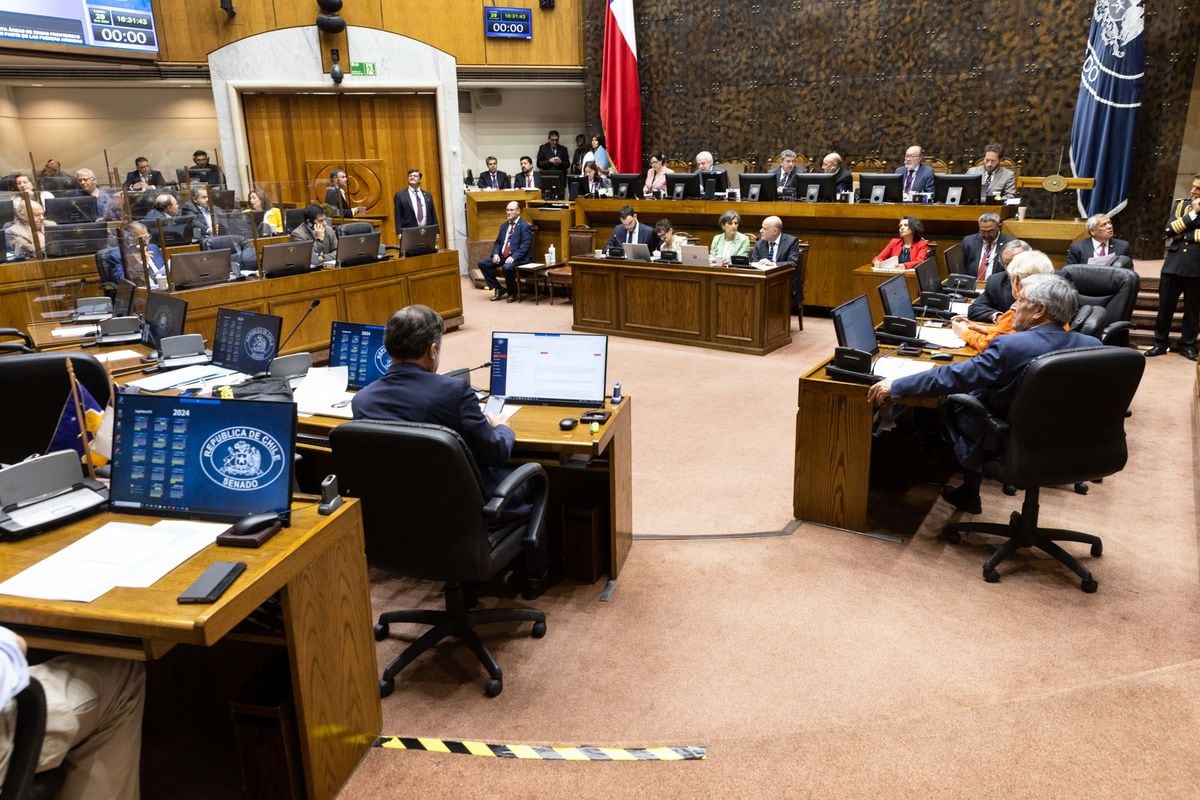After a long session, this Monday the Chilean Senate dispatched the short isapres bill.
The initiative, which was approved in general by 40 votes in favor, one abstention and one vote against, will now go to the Chamber of Deputies, which will resume the discussion in March, after the February legislative recess.
The bill was presented by the left-wing government of Gabriel Boric in May 2023 as a way to give private health insurers a way out after a Supreme Court ruling that, among other things, forces them to adjust the value of its plans to a new table of factors and return excess charges to its affiliates, which the Health Superintendency calculated at about 1,180 million dollars.
After the closing of the session this Monday, the Minister of Health, Ximena Aguilera, stated that she was satisfied with the approval, but indicated that the Executive will insist on the matters not approved in the Chamber of Deputies.
“The project allows compliance with the Supreme Court ruling.
This means that, once approved, people will see a reduction in their charges,” she explained.
The discussion in the Senate was complex.
Despite being approved in general, there were about 30 indications that had to be agreed upon in the chamber.
One of the most controversial was the one presented by the Government that authorized the isapres to apply new increases in their base prices, prior authorization from an Advisory Council, a body that will be created by the new law.
This increase, indicated the Government, could reach up to 41% in some cases, in order to achieve financial balance for the industry.
All because the Isapres have warned that, if they strictly comply with the Supreme Court ruling, they could face the bankruptcy of their business, leaving the nearly three million members adrift.
The Minister of Health, Ximena Aguilera, during the debate on the short Isapres Law. Claudio Cavalieri (Senate of Chile)
The indication, which had been rejected in the Health Commission, but later reinstated in the Senate Finance Commission, was approved by 28 votes in the Upper House, but the head of Health was asked for a limit of less than 41% for the eventual price increase.
Faced with this request, Aguilera promised to enter an indication in the process of the Chamber of Deputies to establish a limit, after knowing the Health Cost Indicator (ICSA), which would set new parameters for the values of health benefits. .
“Compliance with the ruling will cause an abrupt imbalance in the income and expenses of the Isapres and in response to this imbalance we are betting on this extraordinary adjustment.
That is why we have said that we are available to establish a ceiling, and we will make it known in the Chamber of Deputies,” explained the minister.
Another of the controversial indications approved by the Senate was the mutualization of the debt of private insurers with their affiliates due to excessive charges.
The calculations of the Superintendency suggest that this amounts to about 1,180 million dollars, but the report of the Technical Advisory Committee created by the Senate Health Commission, applied a different criterion and mutualized the debt, incorporating all the affiliates of the system, with which the amount was reduced to 451 million dollars.
The new parameter was not accepted by the Executive, which considers that, if applied, the ruling of the Supreme Court would not be fully complied with.
However, in this Monday's vote, the senators approved applying mutualization and reducing the debt by 23 votes in favor.
As a result of this, the Minister Secretary General of the Presidency, Álvaro Elizalde, announced that the Government will evaluate sending a reservation of unconstitutionality, considering the changes proposed in the project to be inadmissible.
Another of the indications that the Boric Administration will insist on in the Chamber will be the continuity of coverage of catastrophic illnesses by Fonasa, in the event of the bankruptcy of an isapres.
The norm was voted against after a discussion in which it was requested to change a word within the articles, which was not accepted by the Executive.
However, the Minister of Health expressed her satisfaction with the approval of the Fonasa Complementary Coverage Modality (MCC) that would allow members of the public system “the possibility of contracting coverage from private insurers with private providers.”
Likewise, the Secretary of State maintained that with this approval the Government complies with the deadlines established to advance in delivering a solution to the crisis of the private health system, after the ruling of the Supreme Court of November 2022.
Subscribe here
to the EL PAÍS Chile newsletter and receive all the key information on current events in the country.

